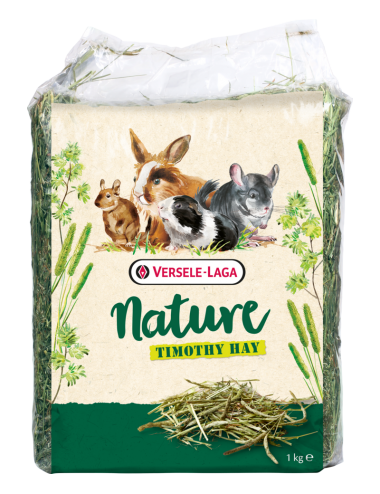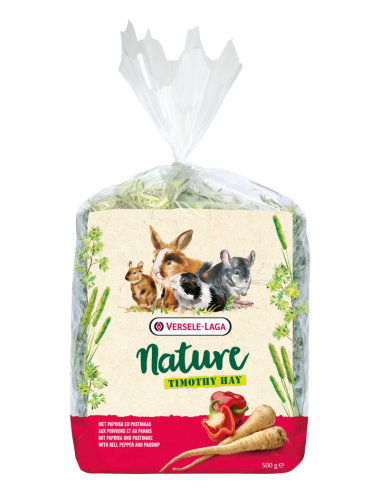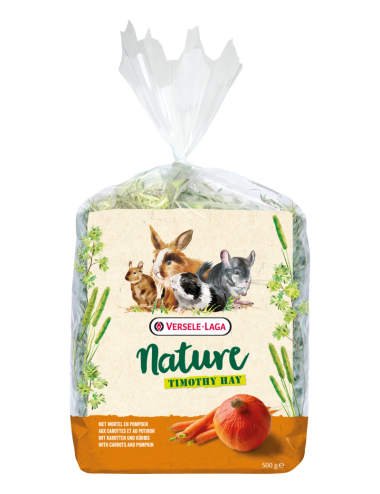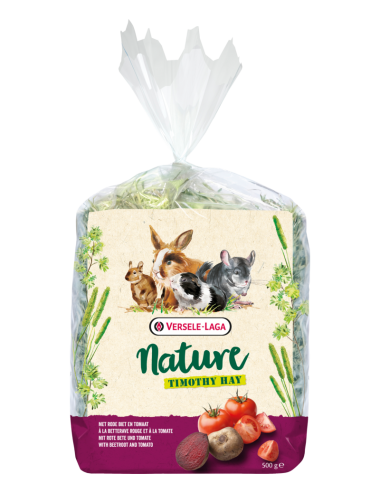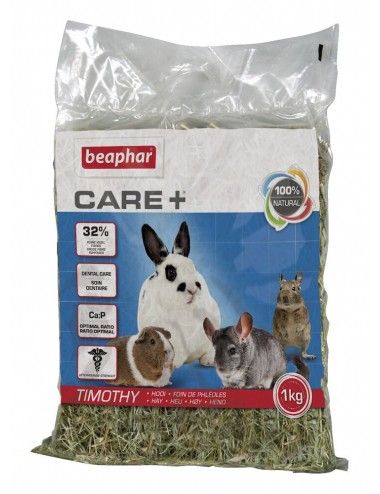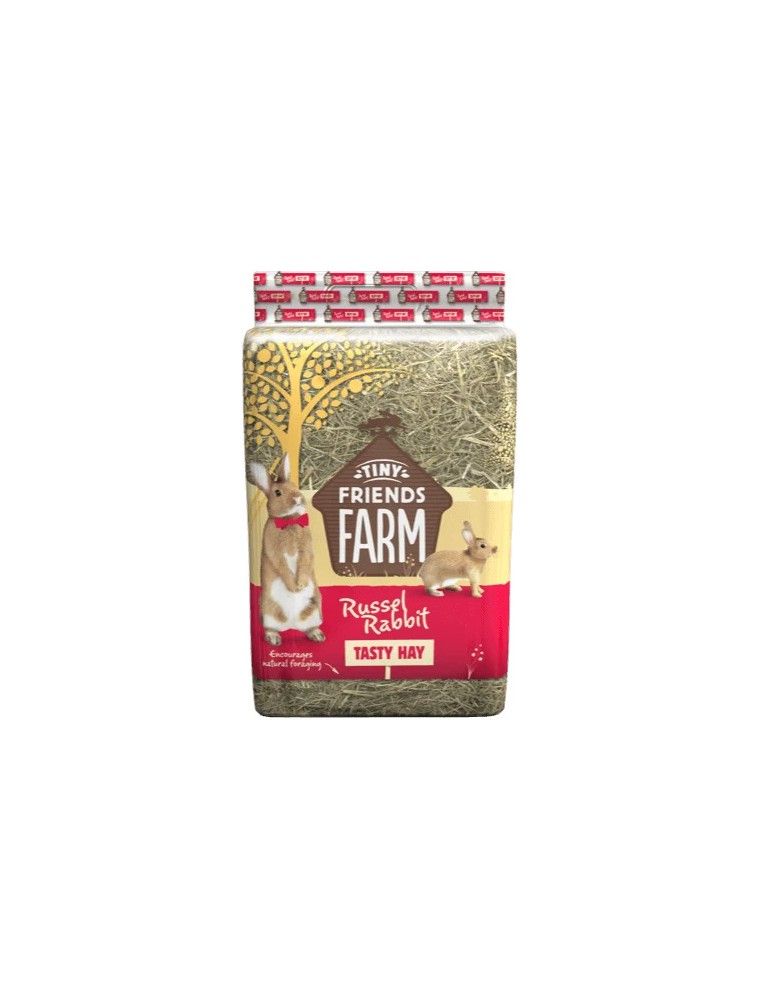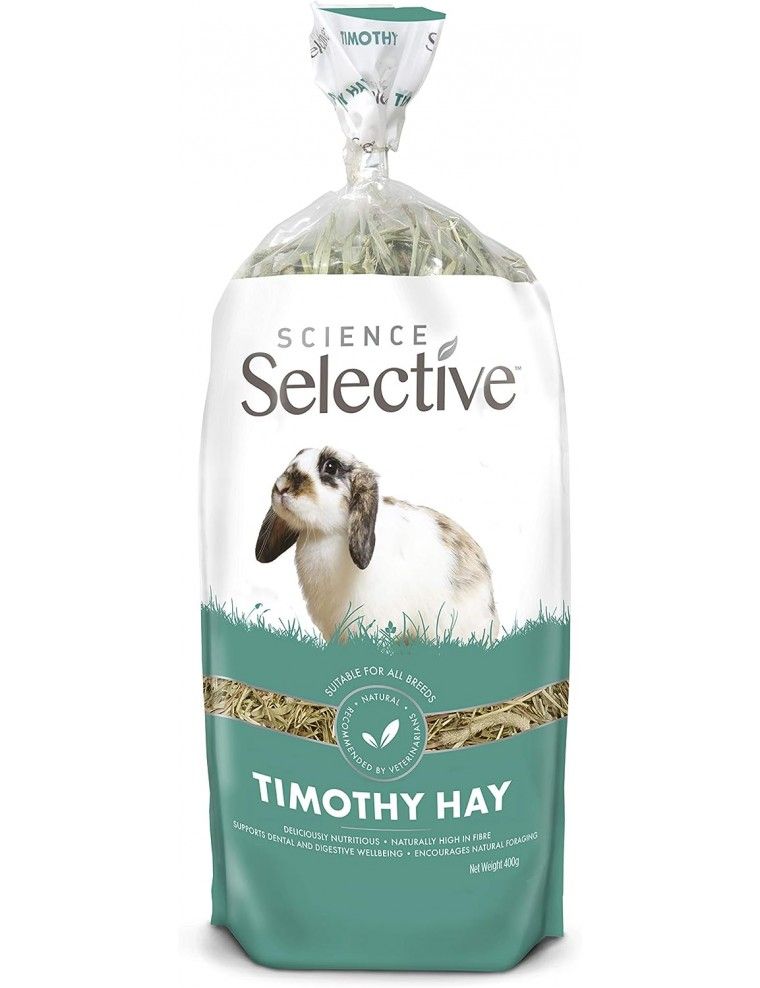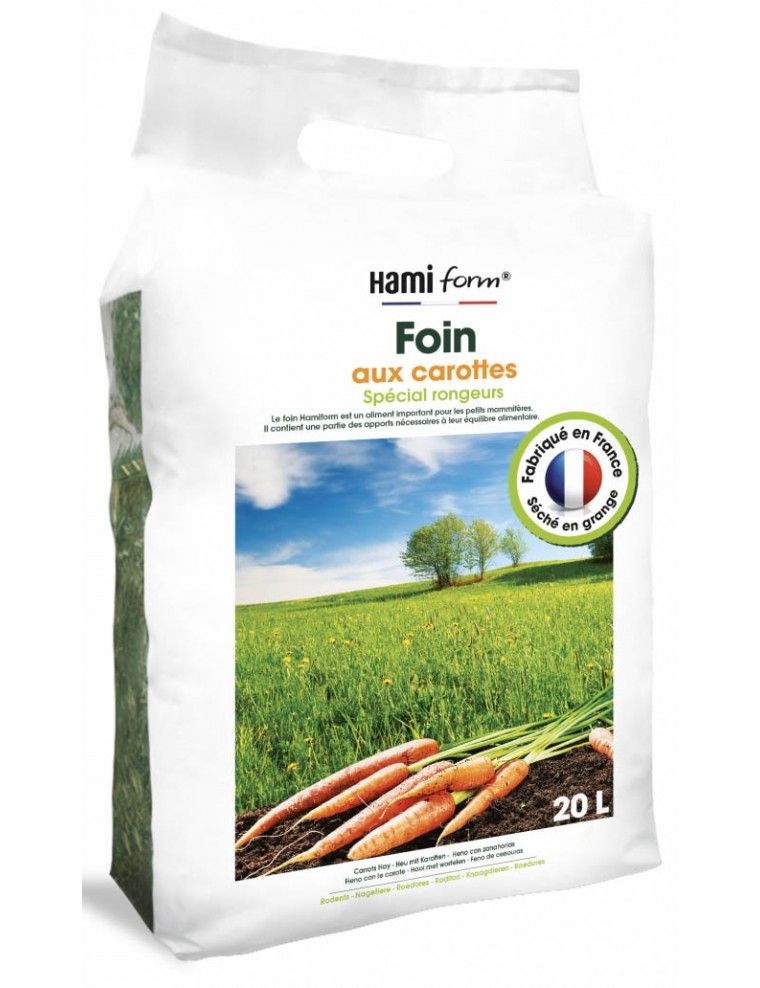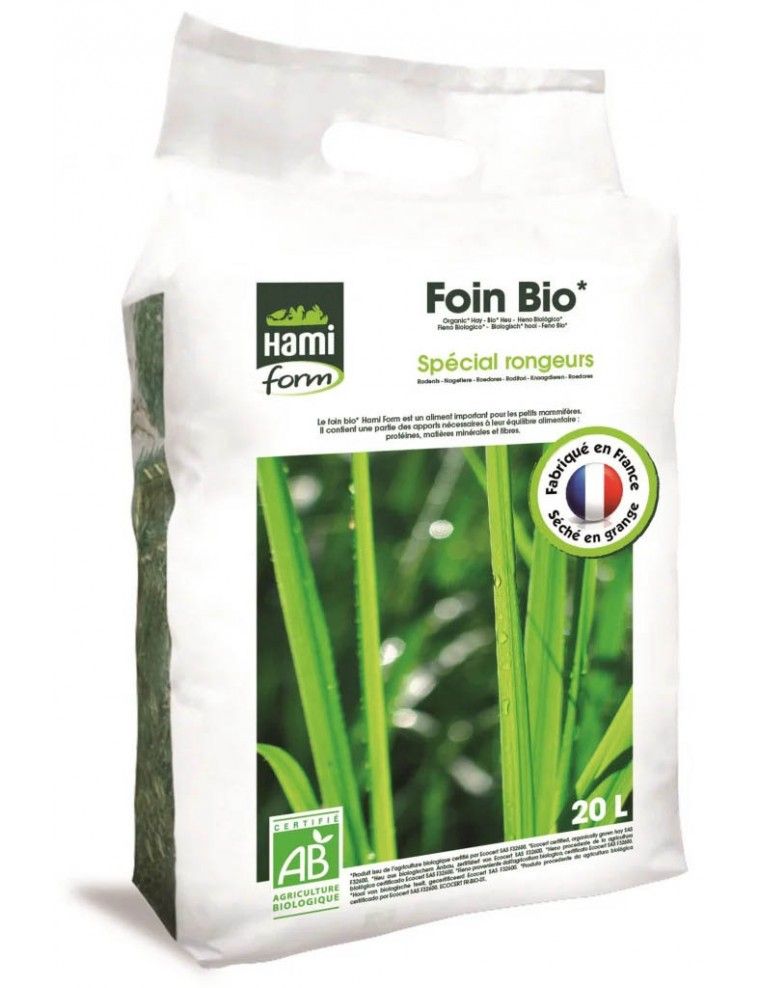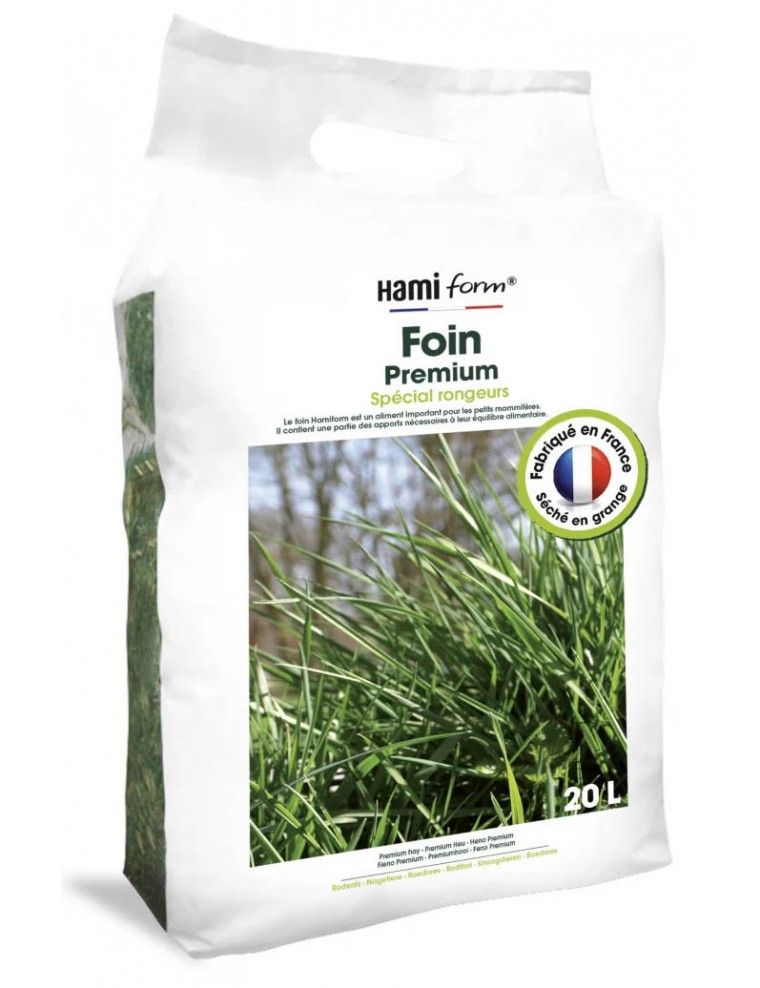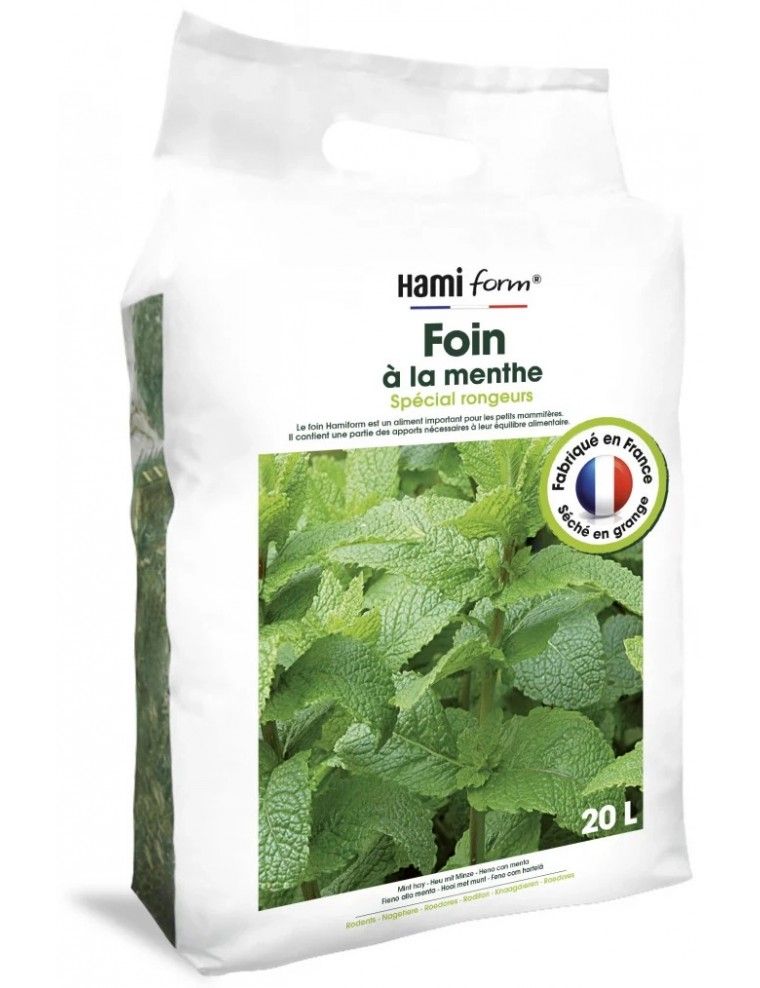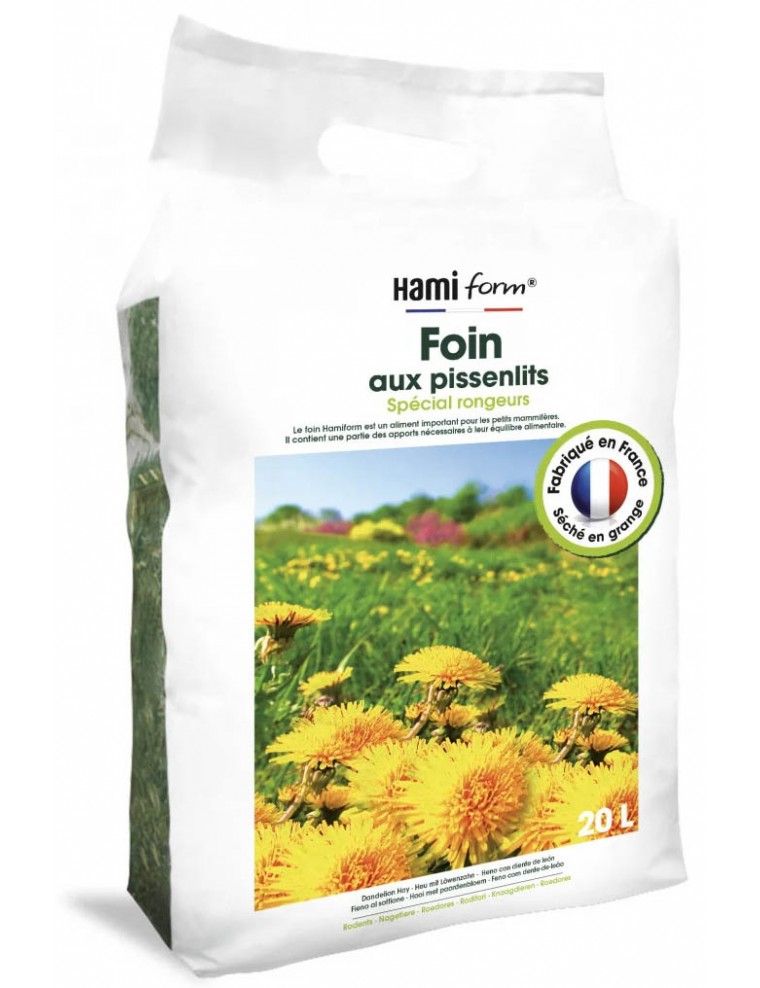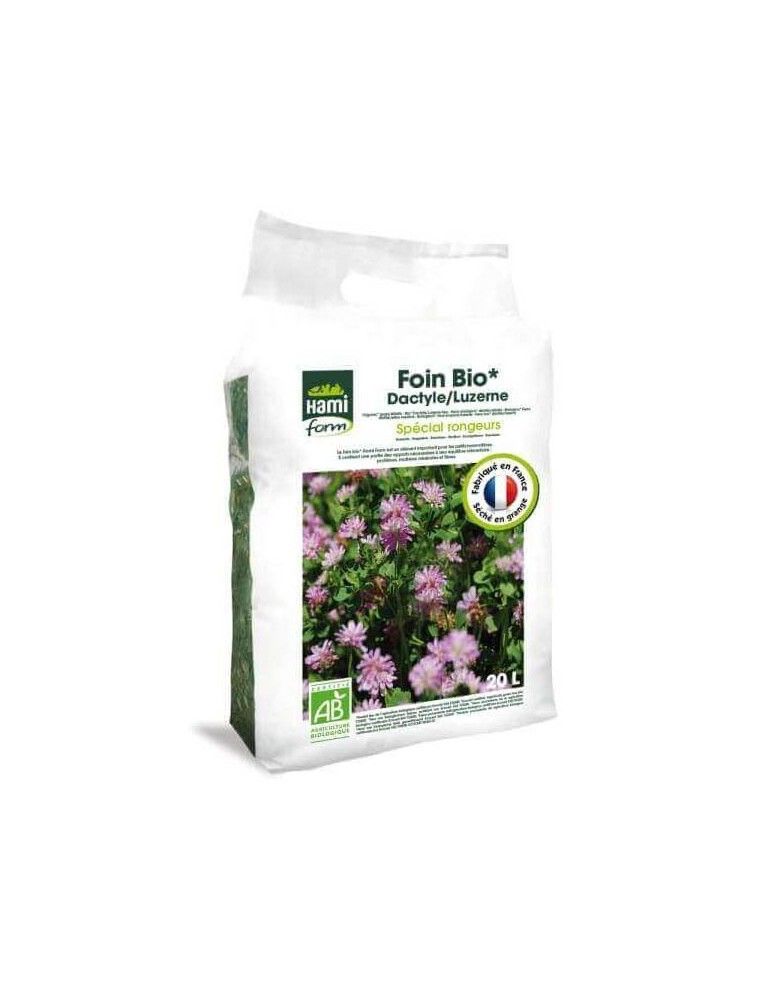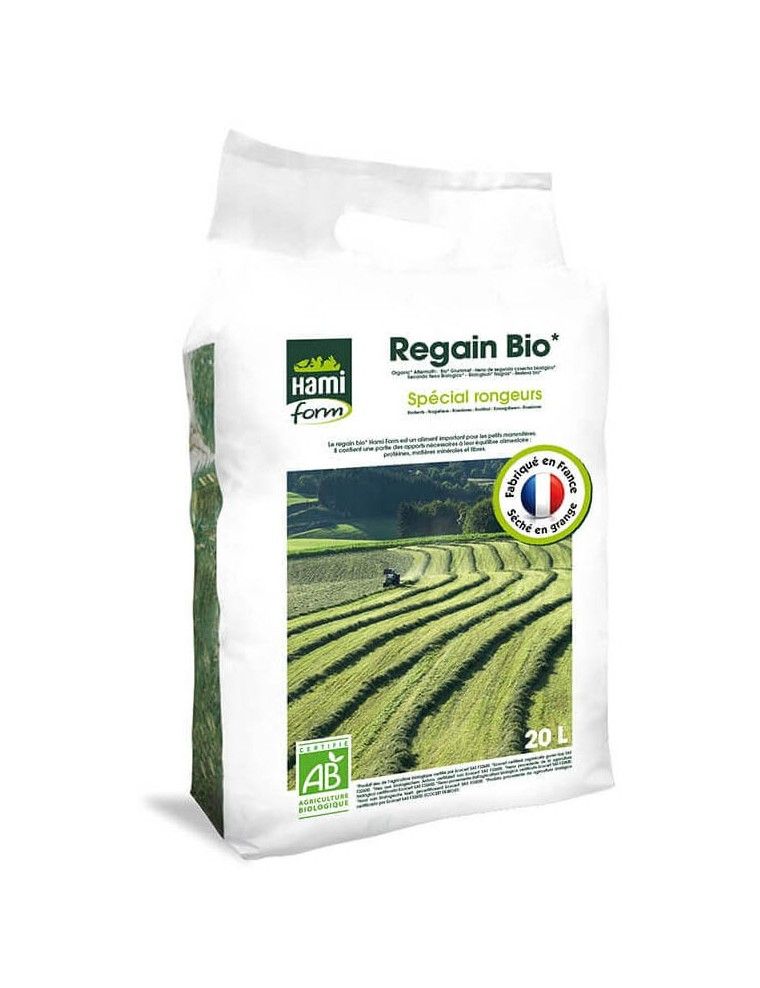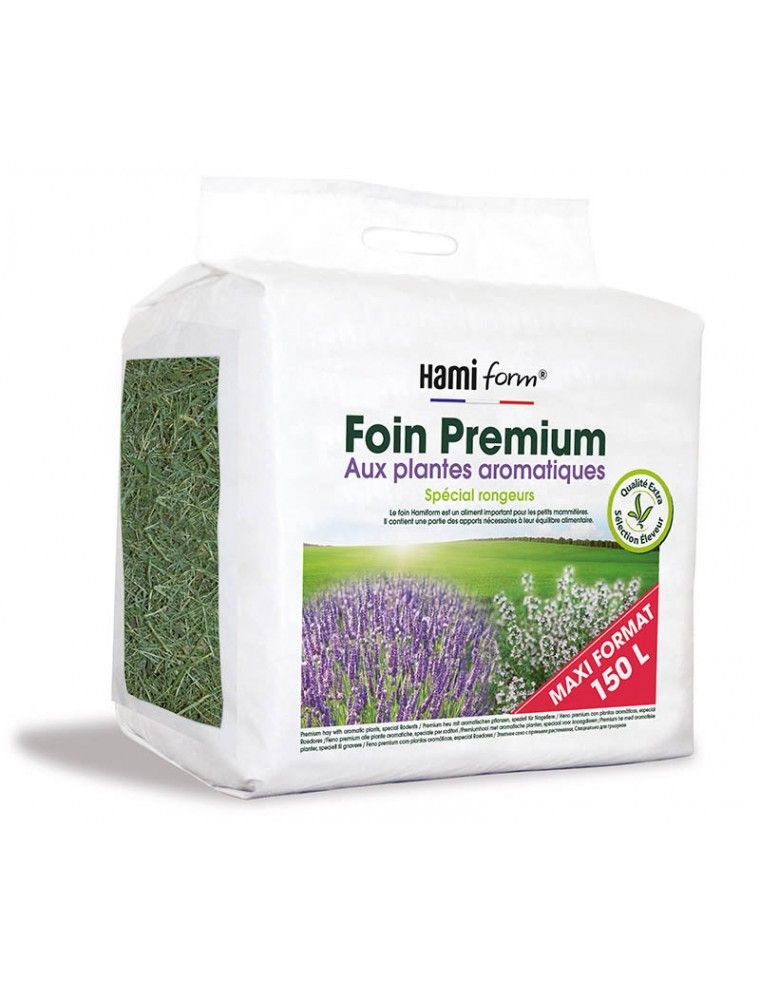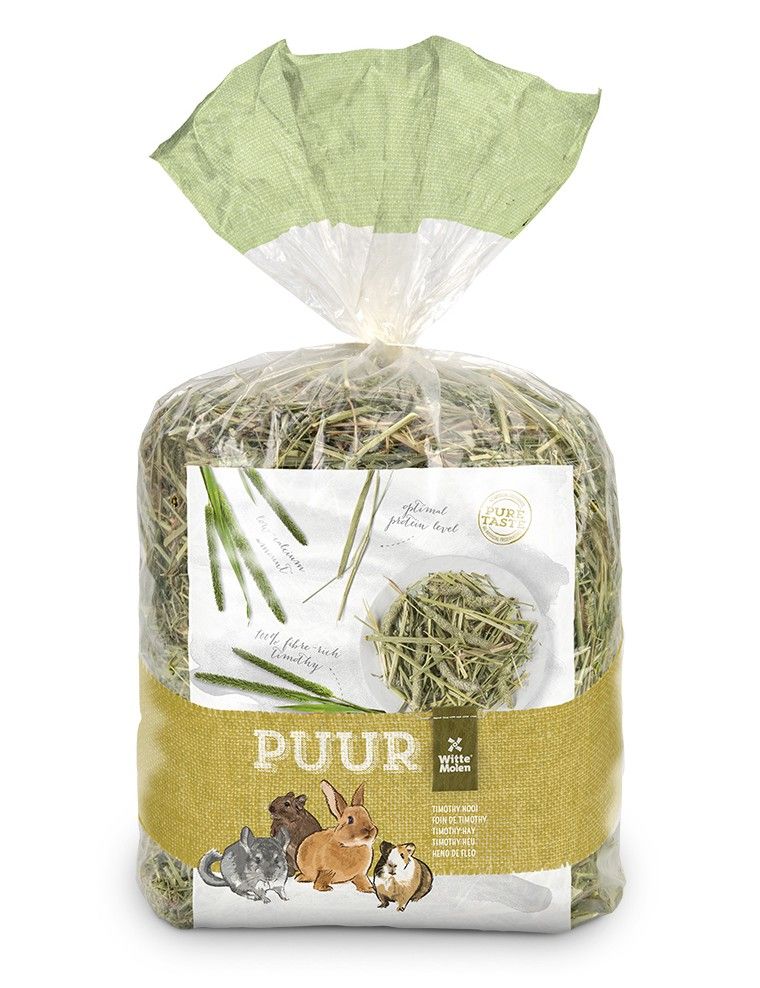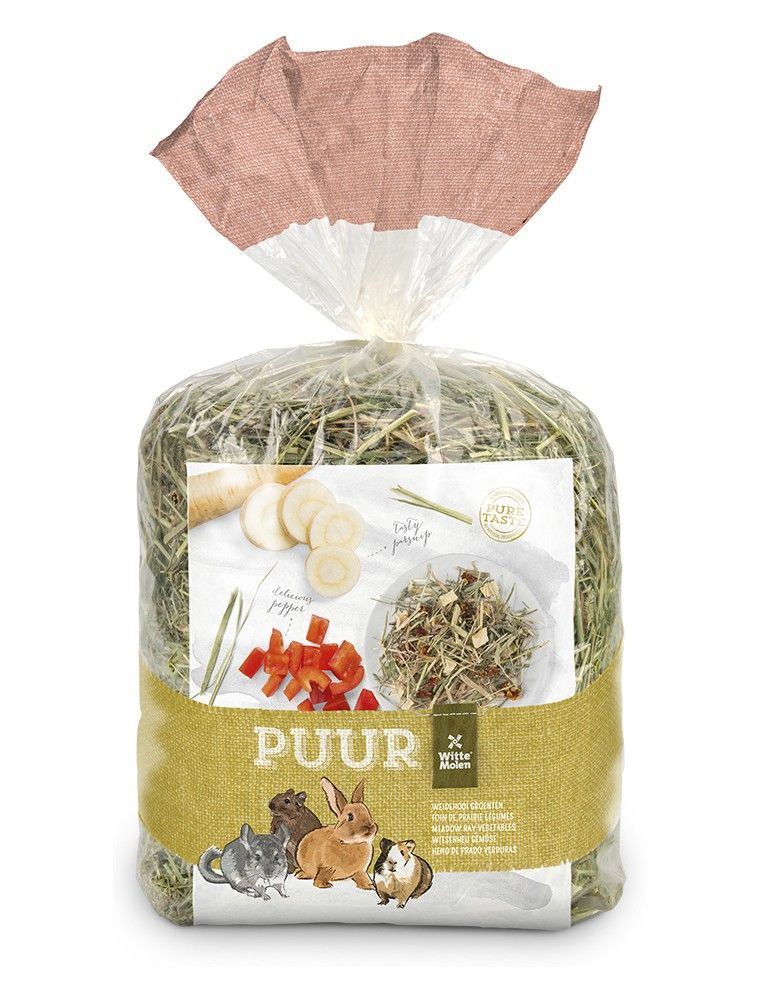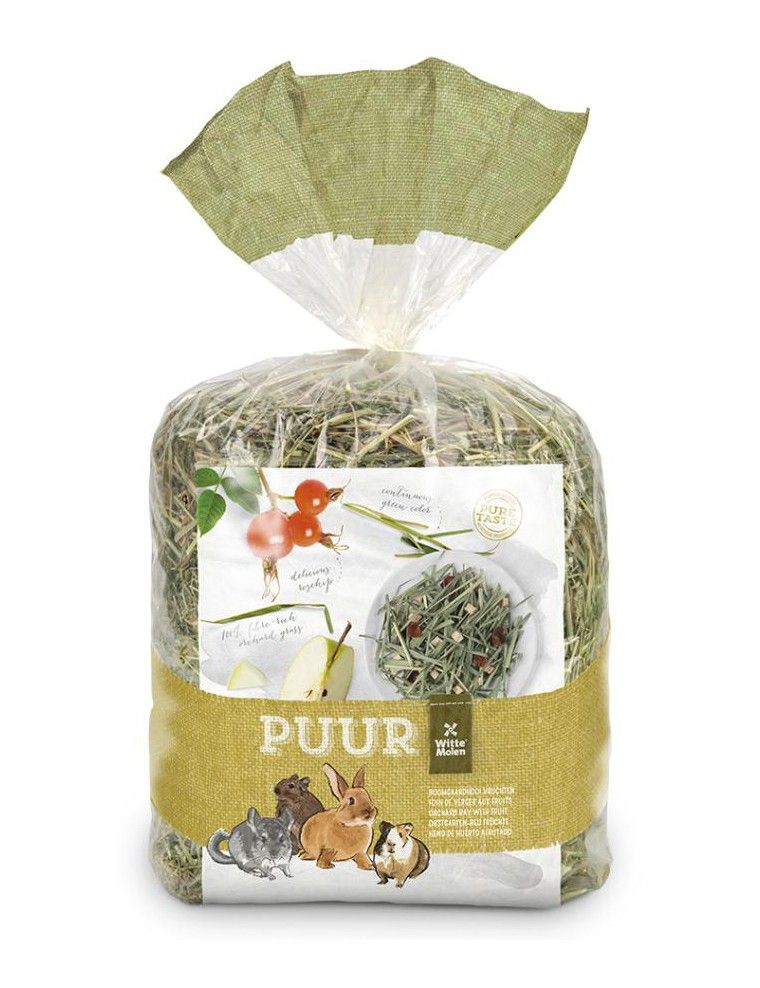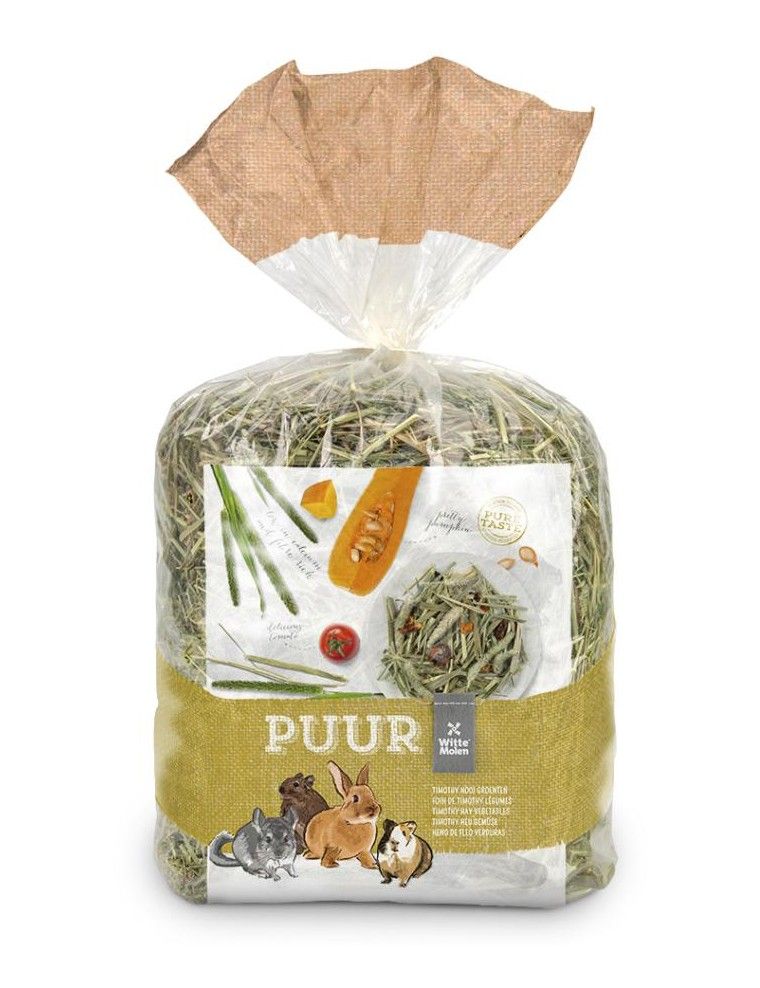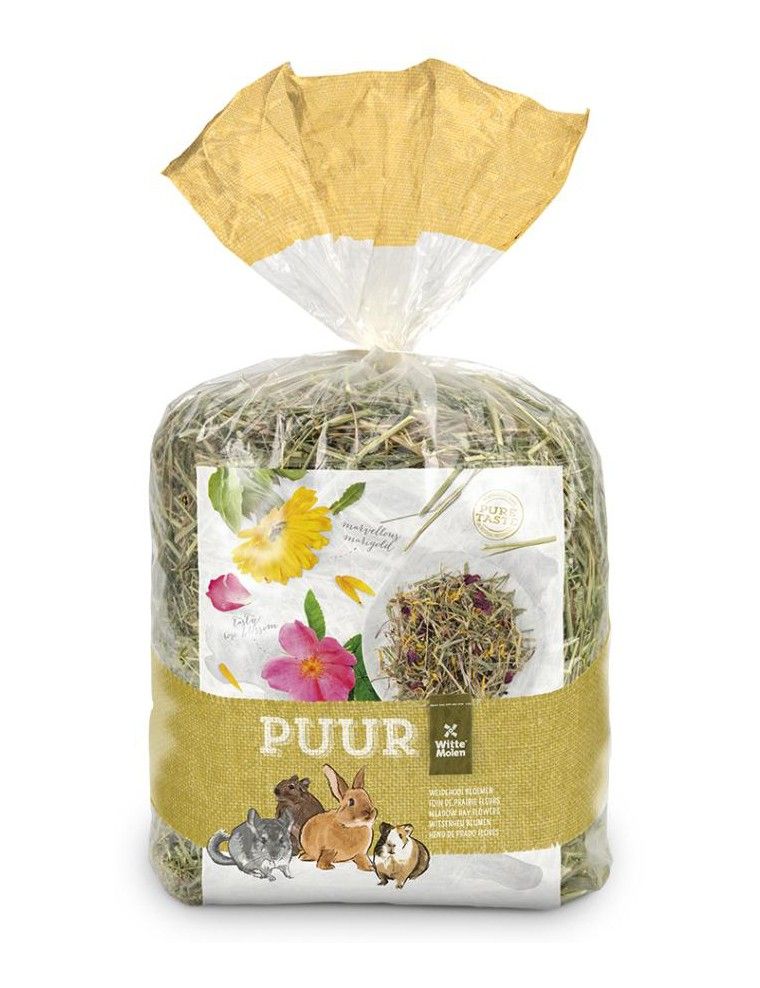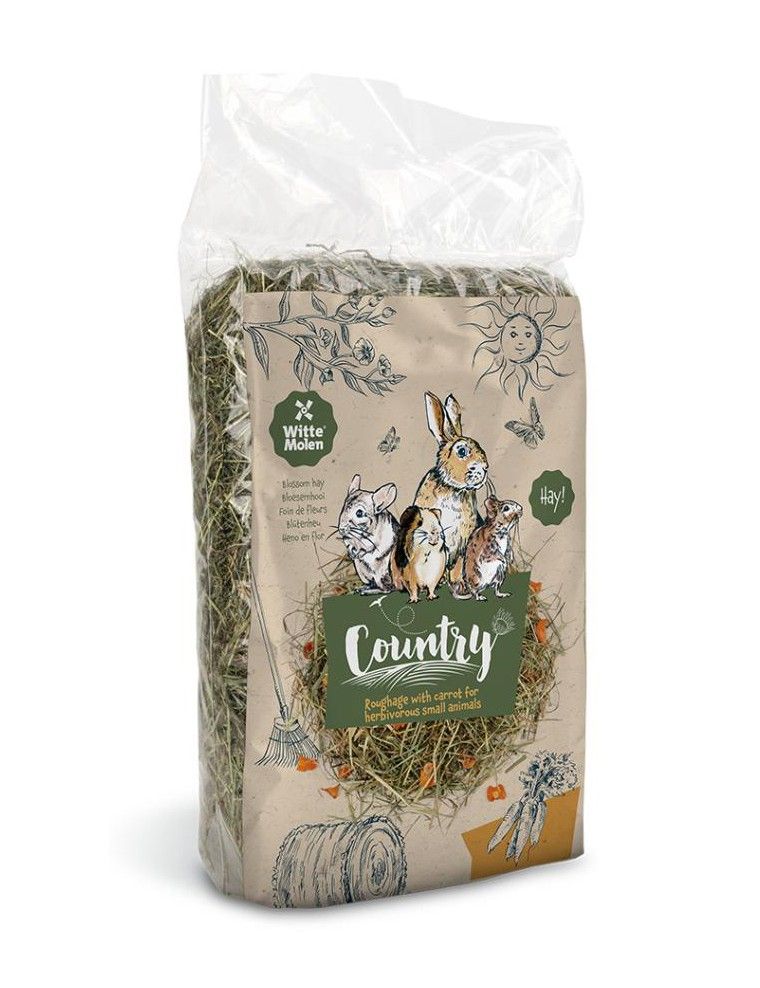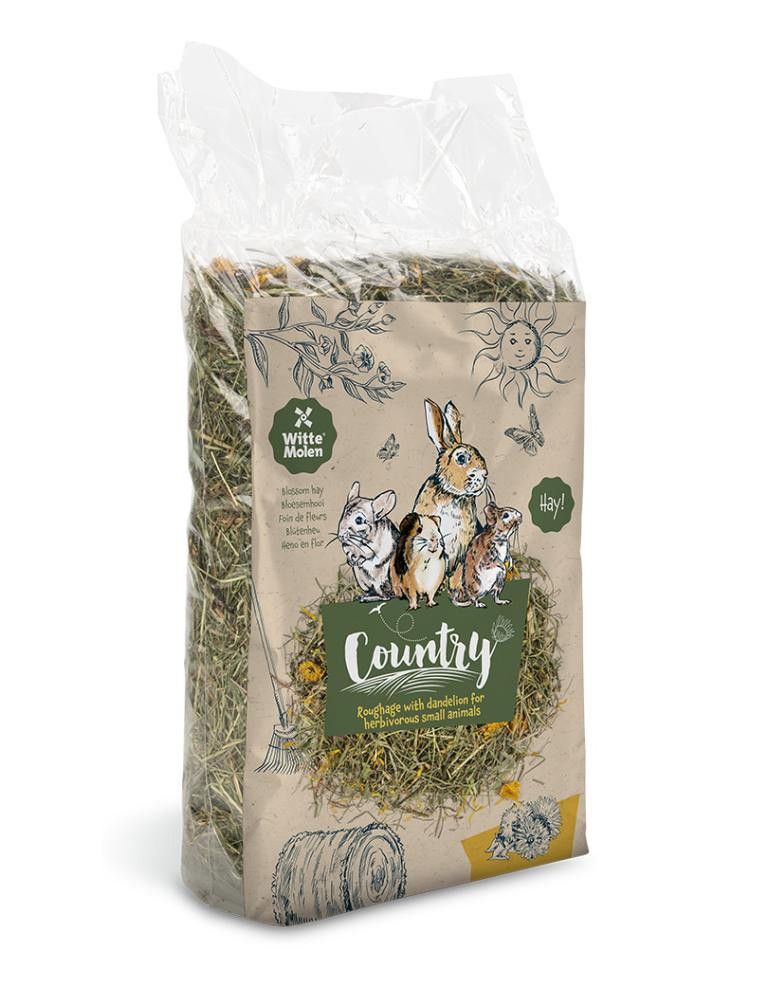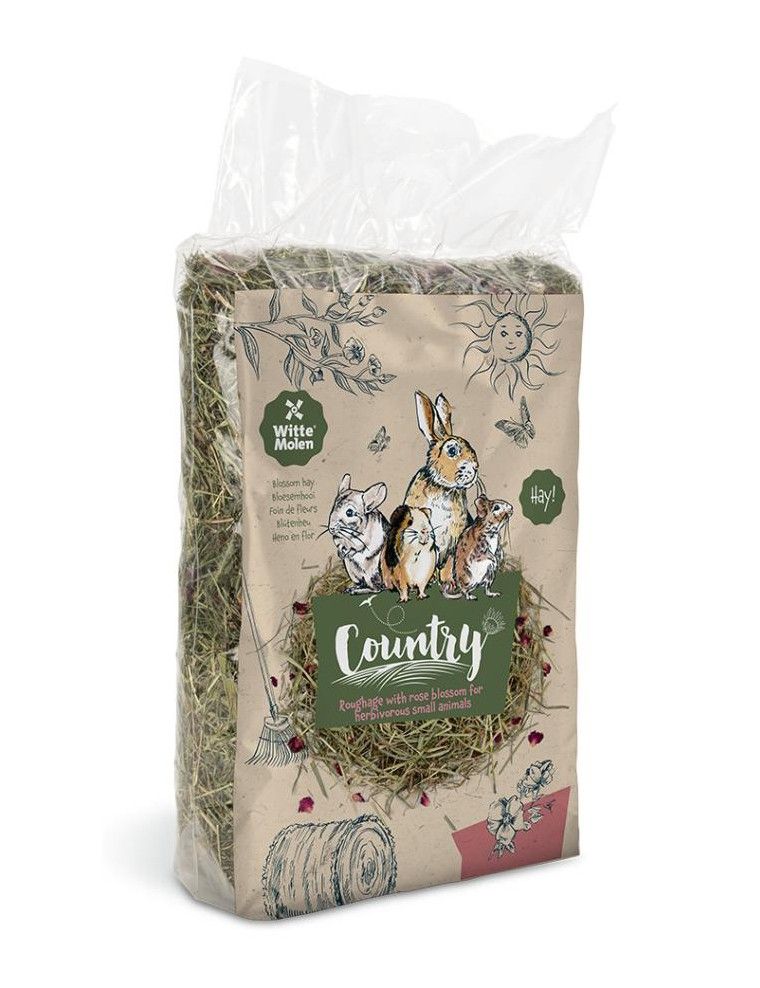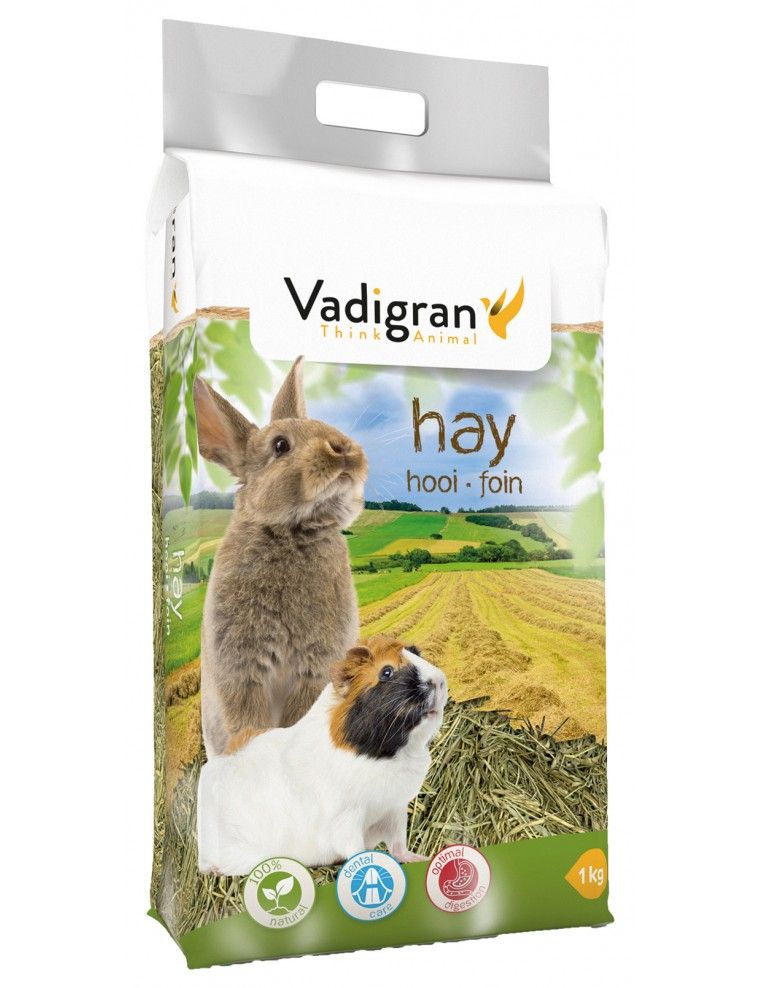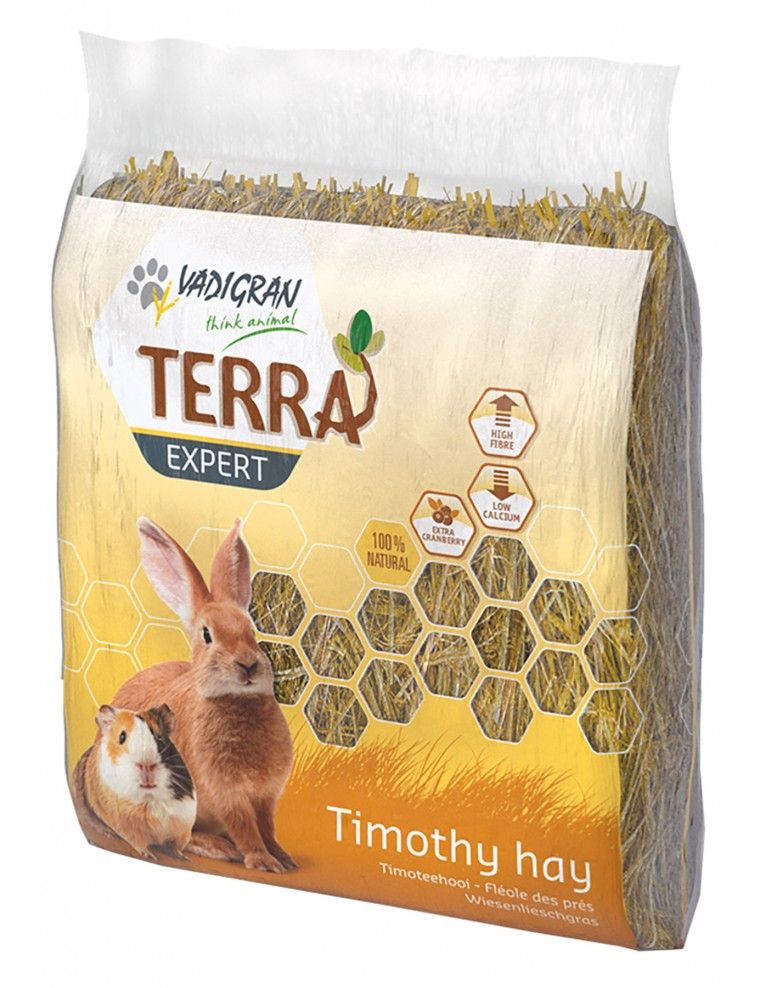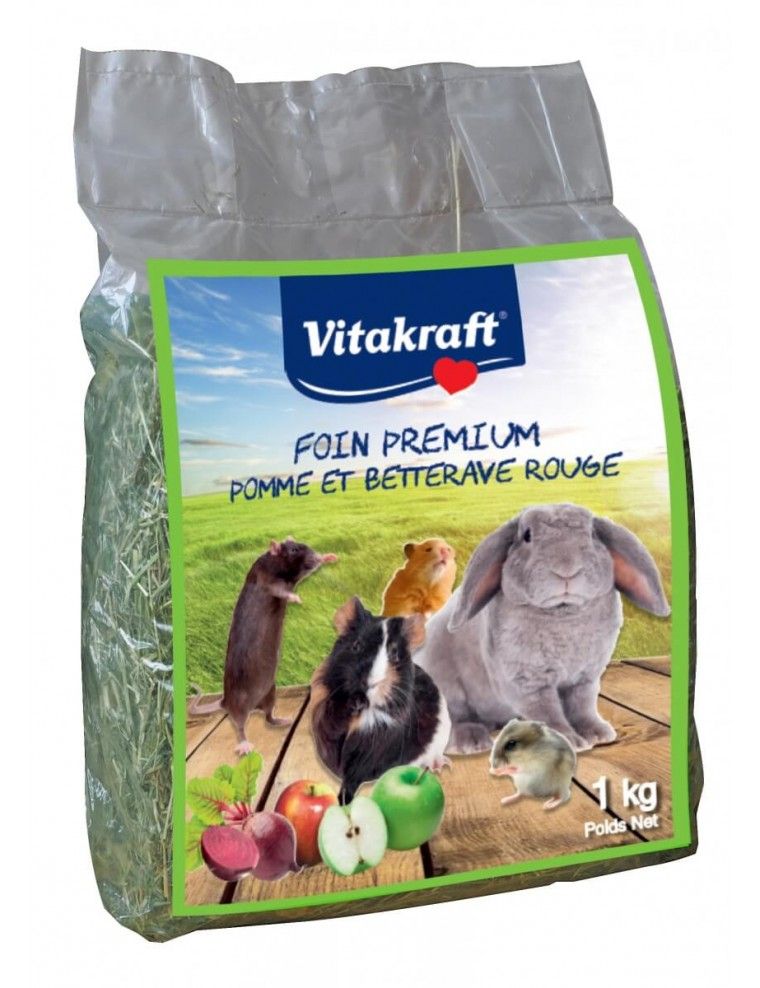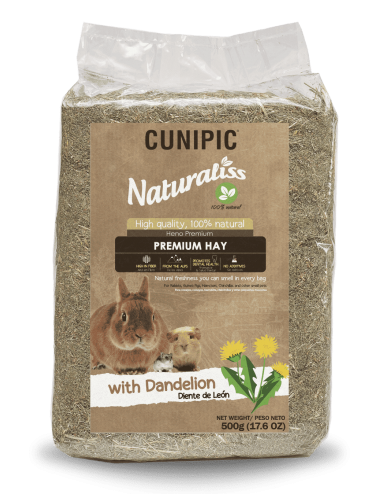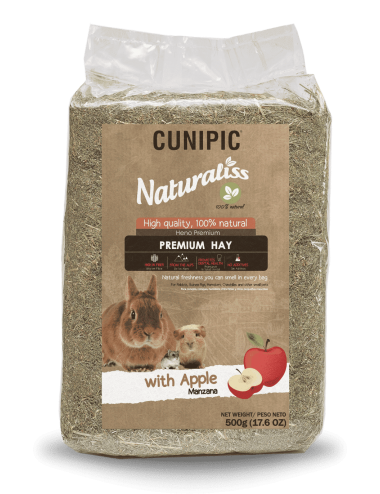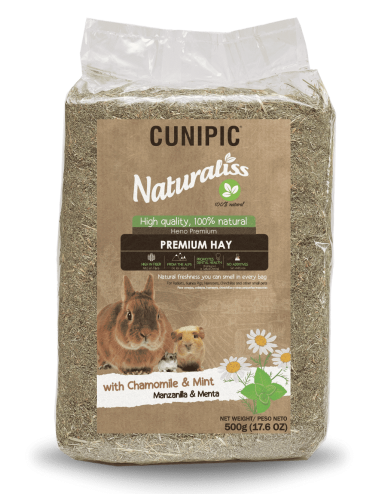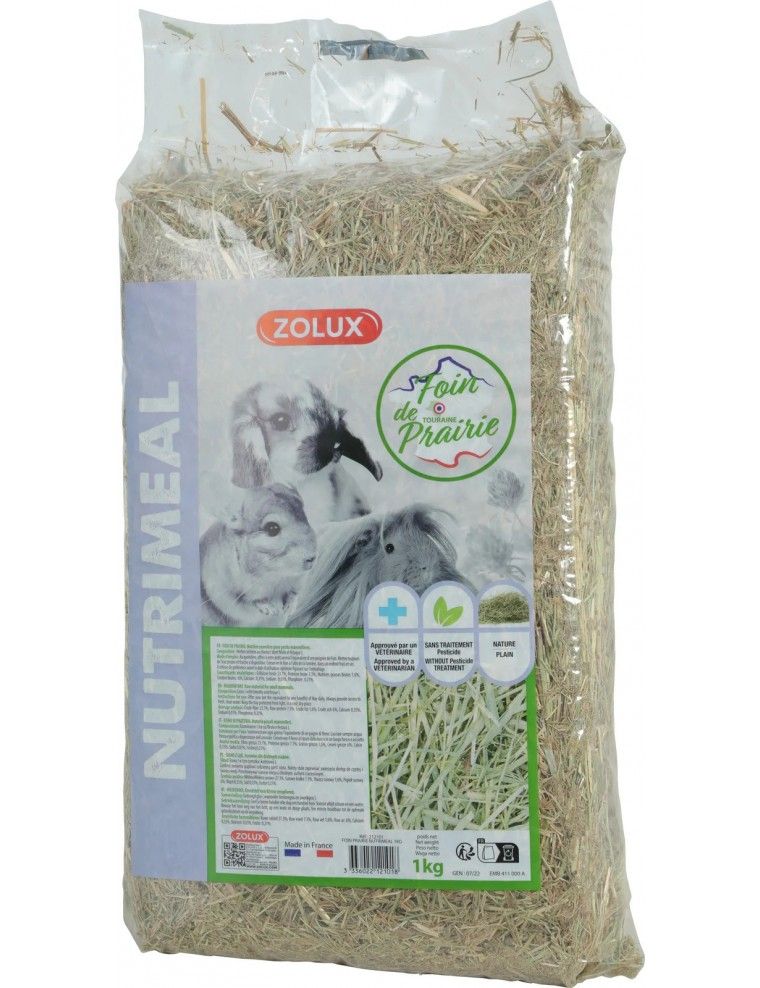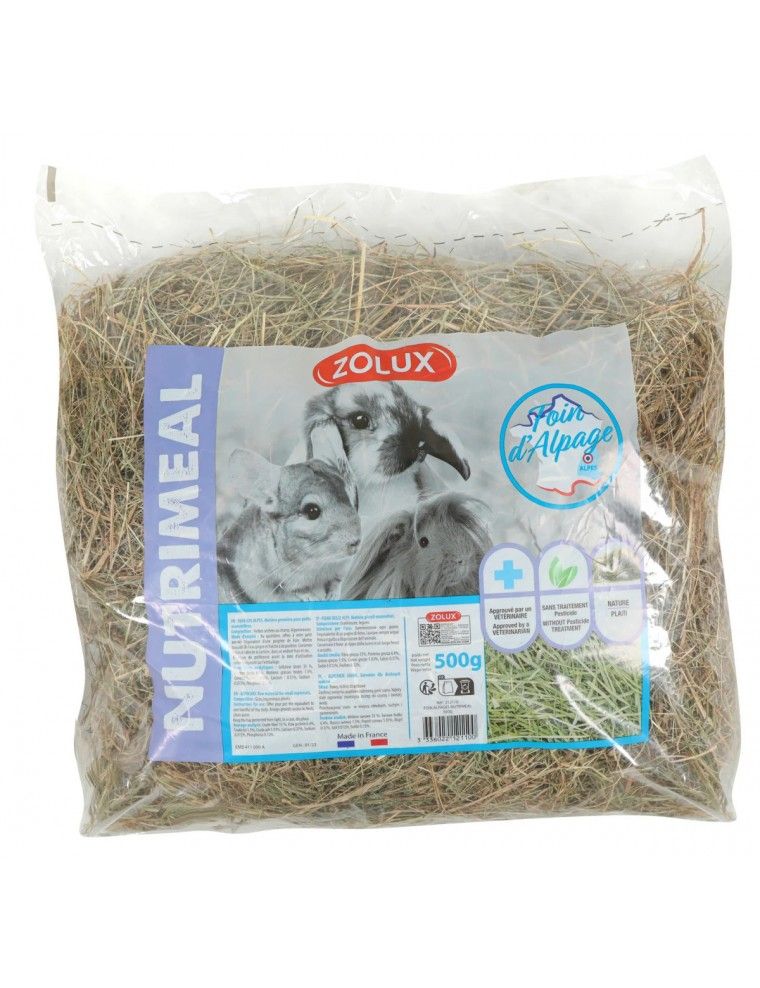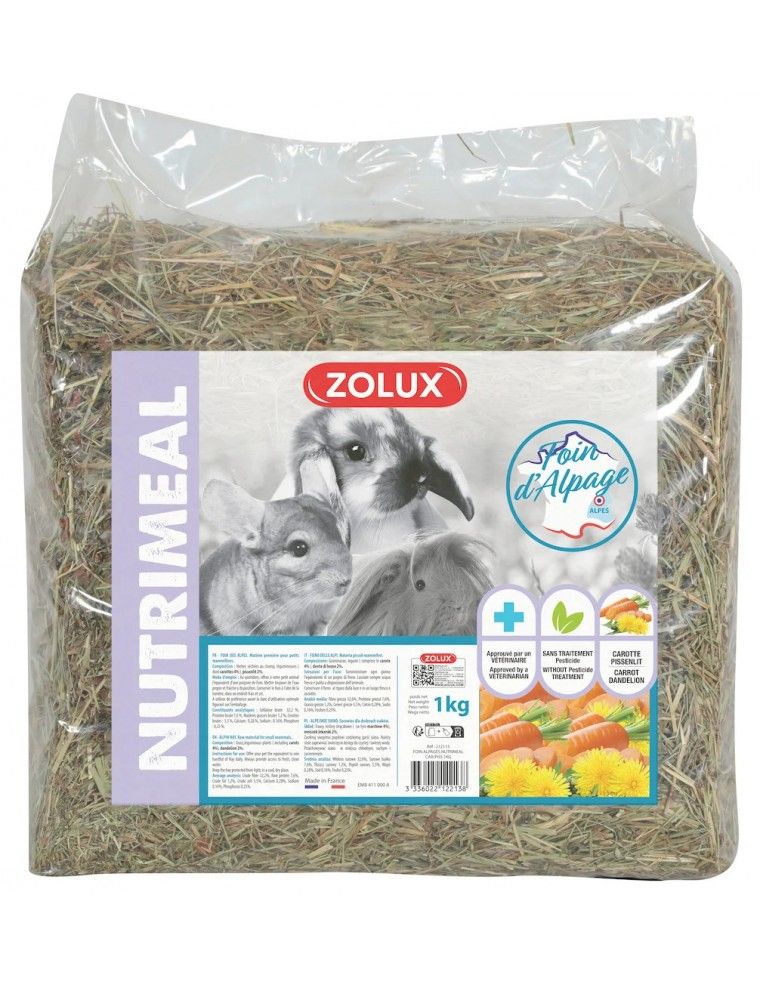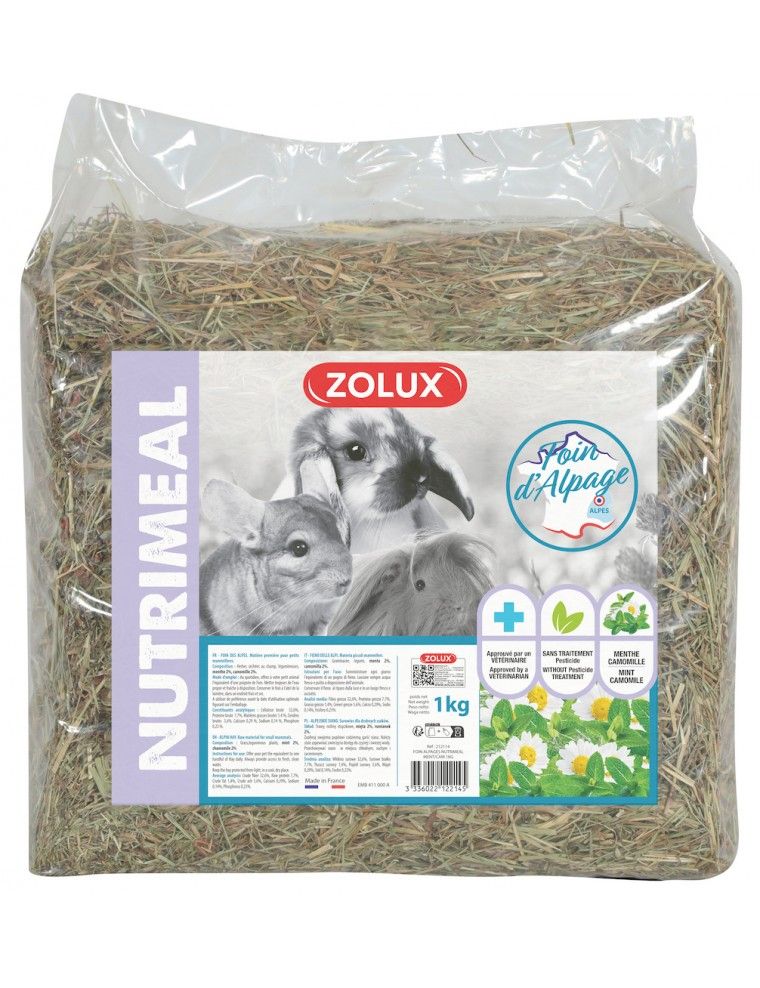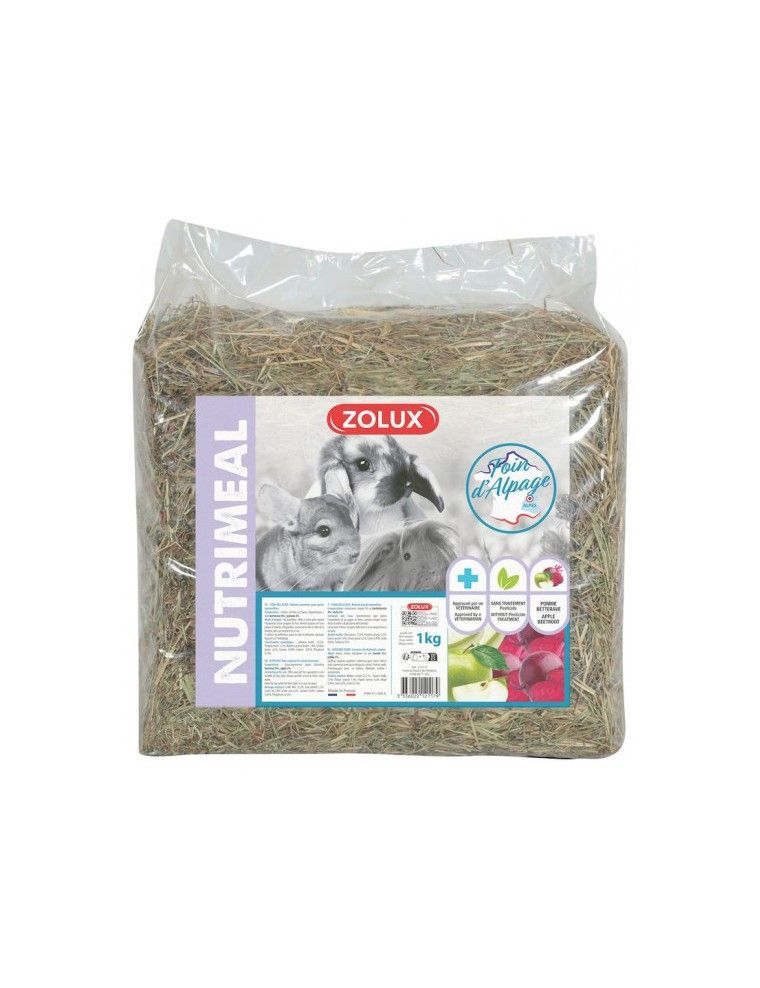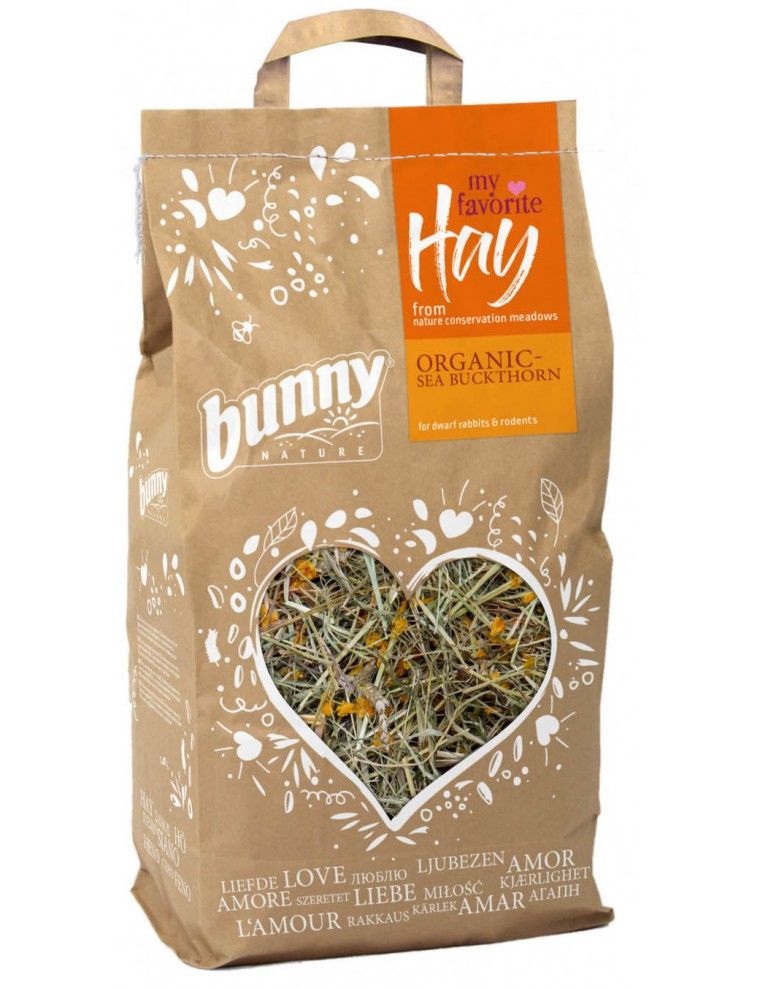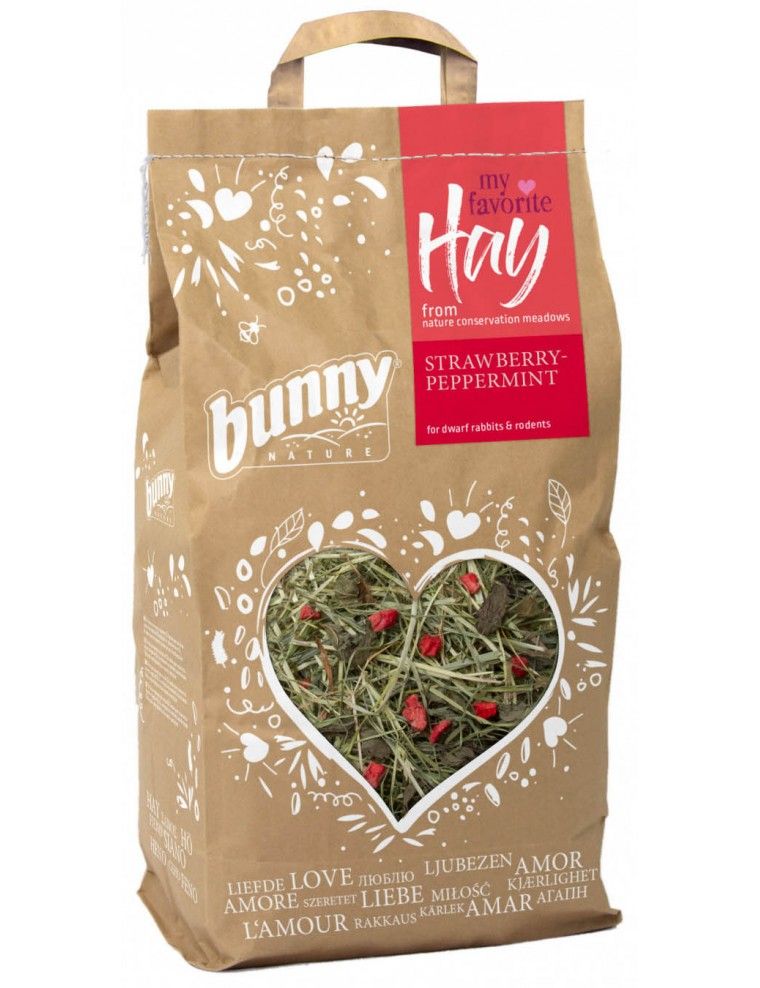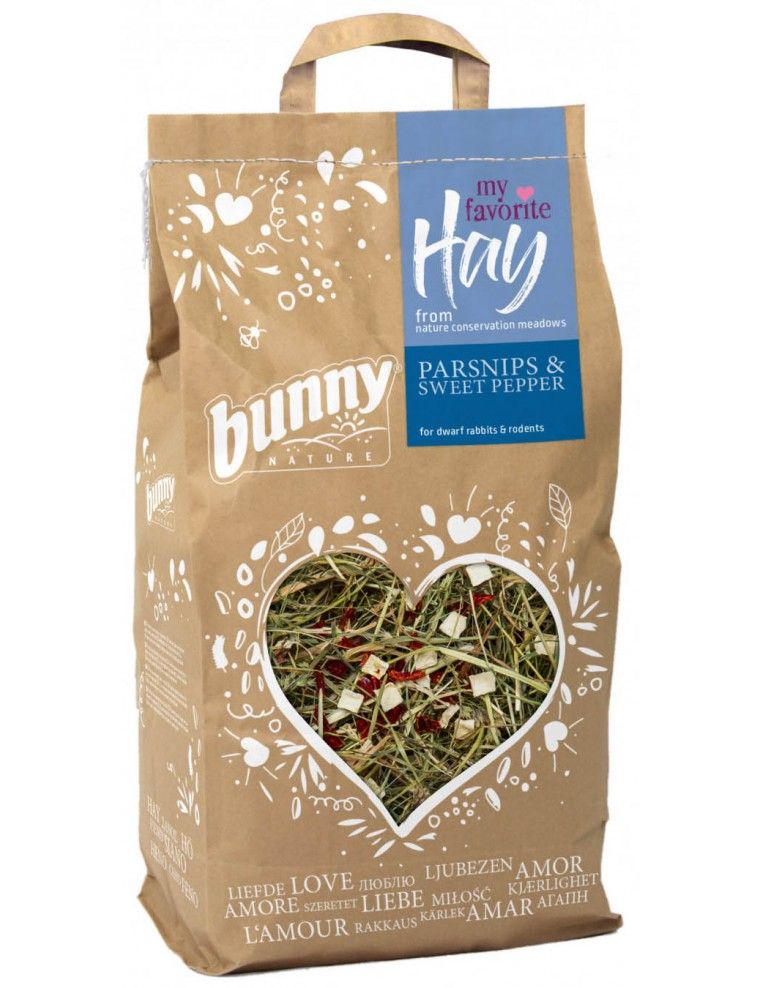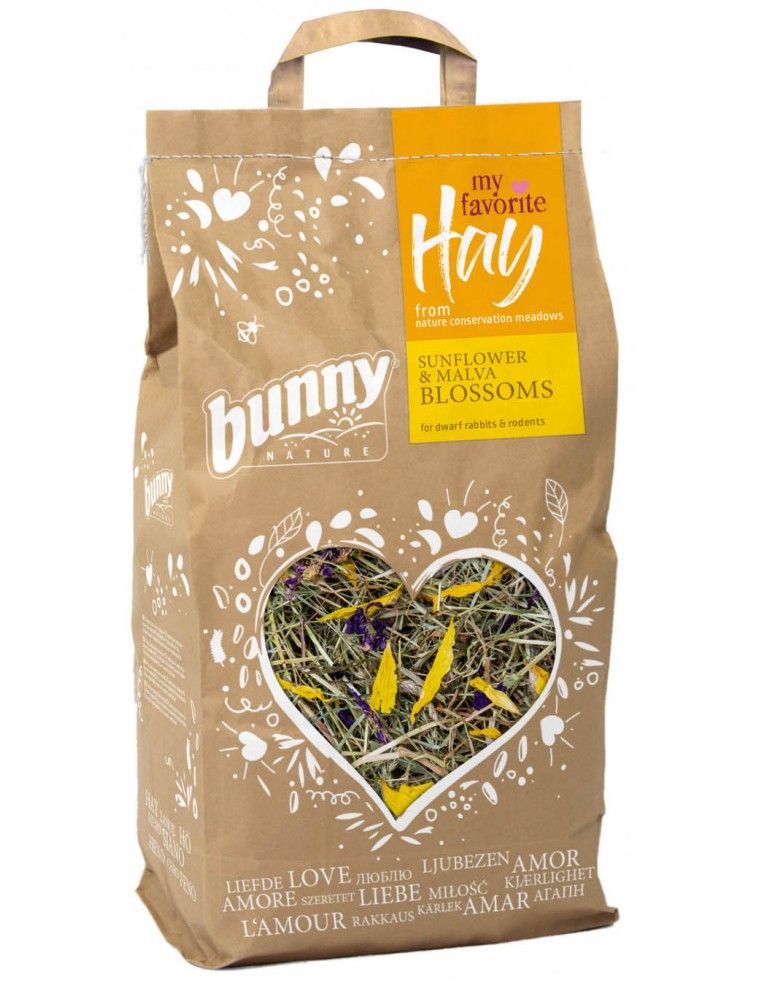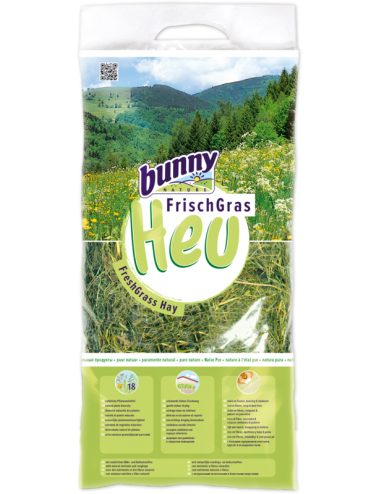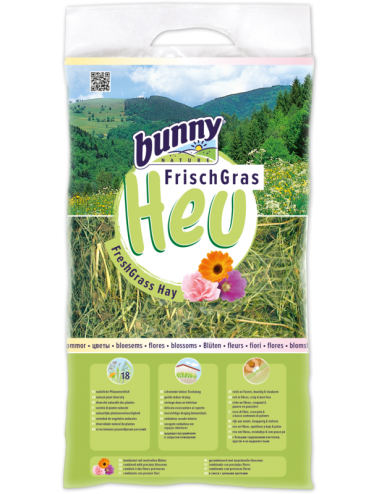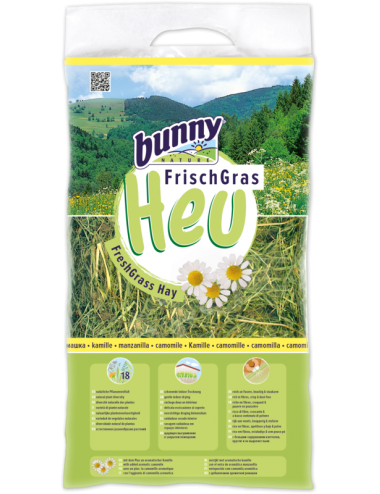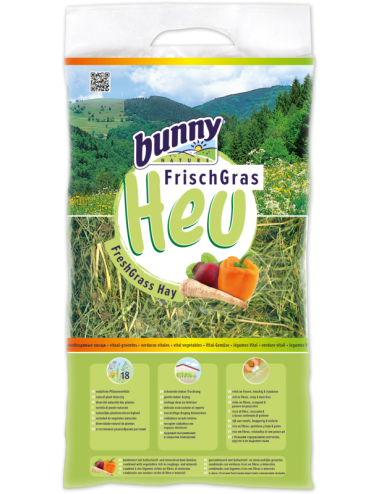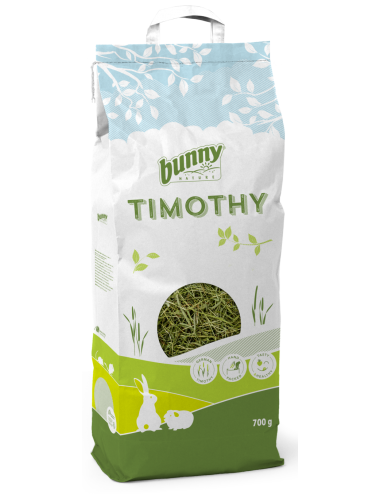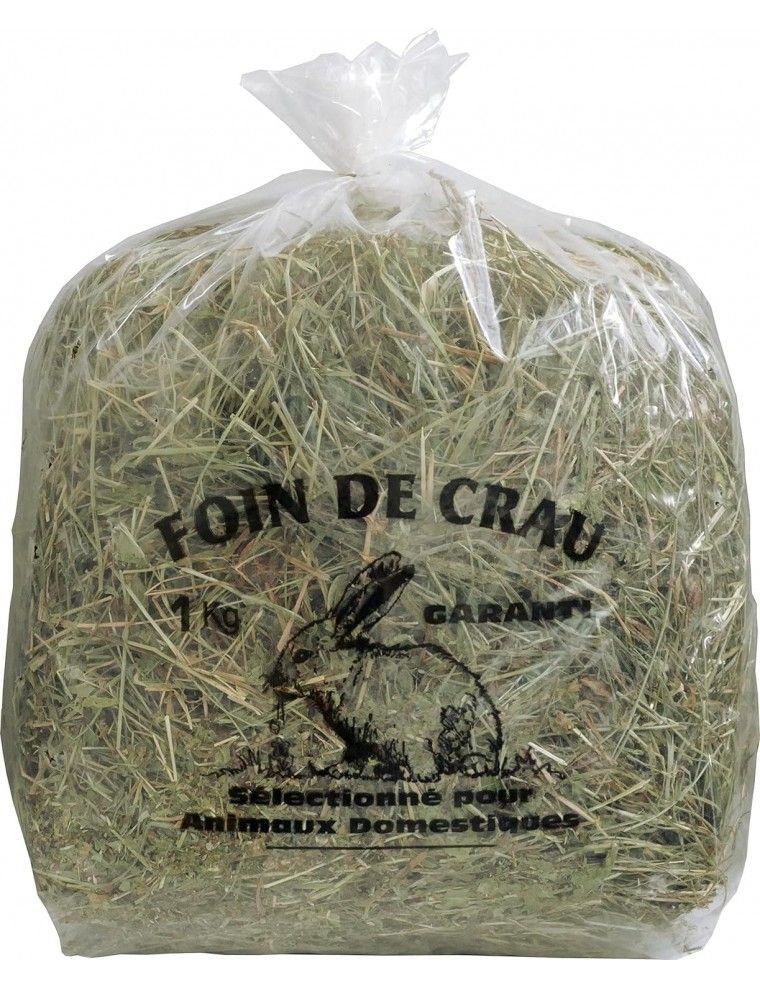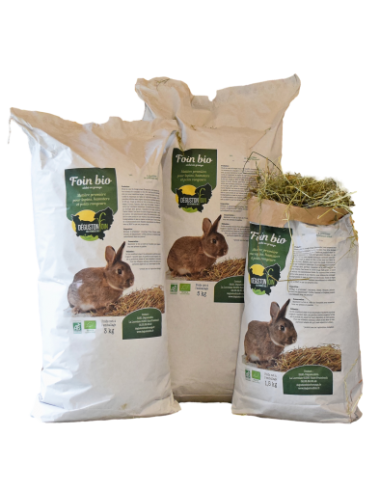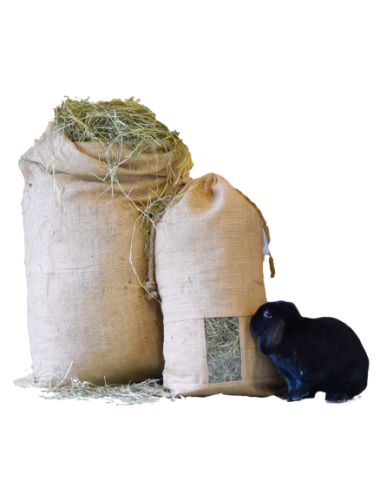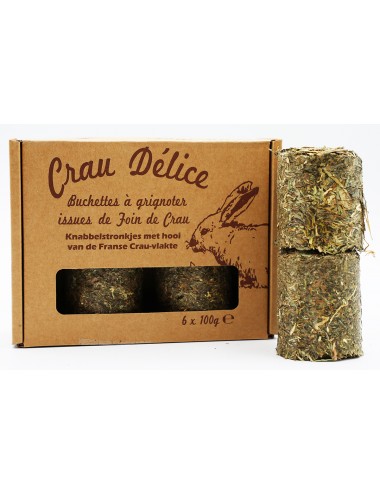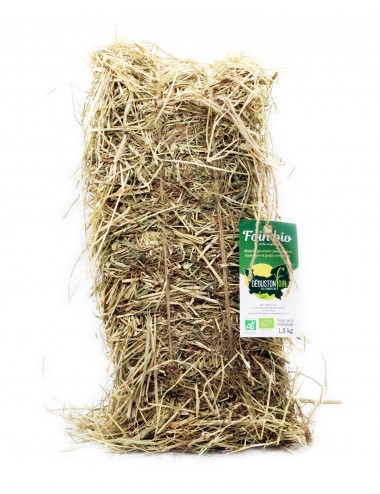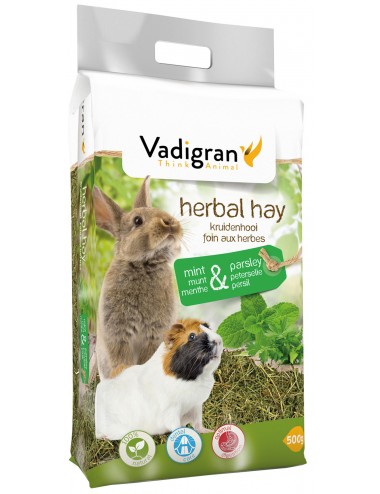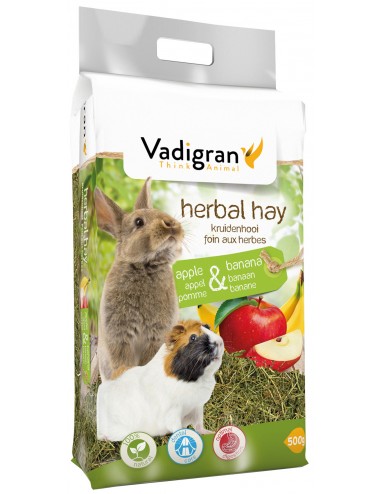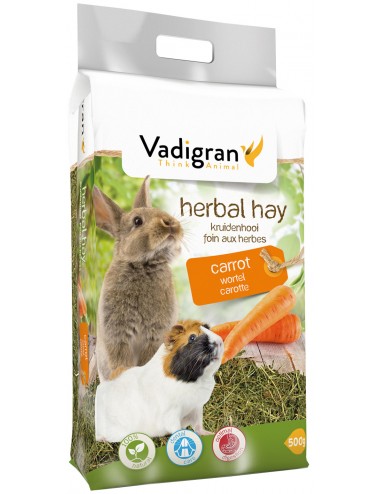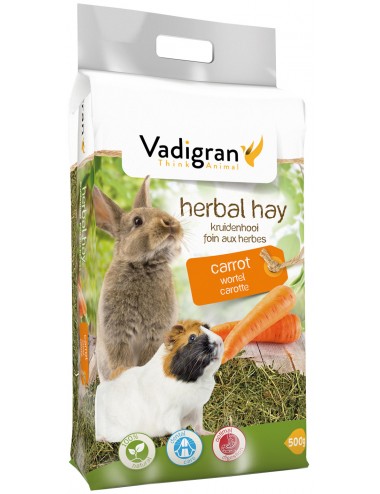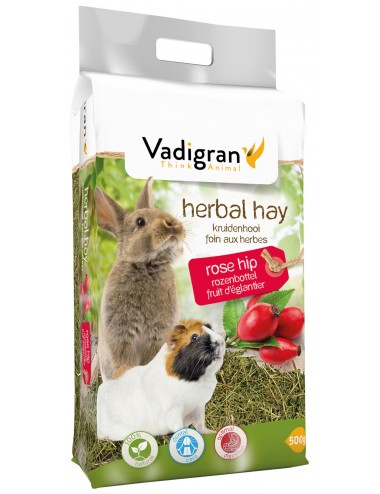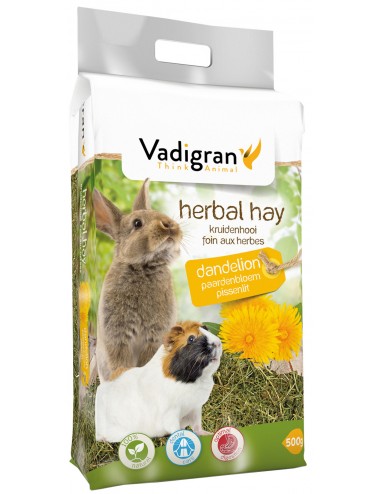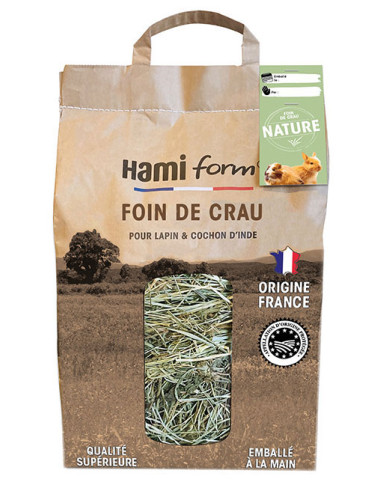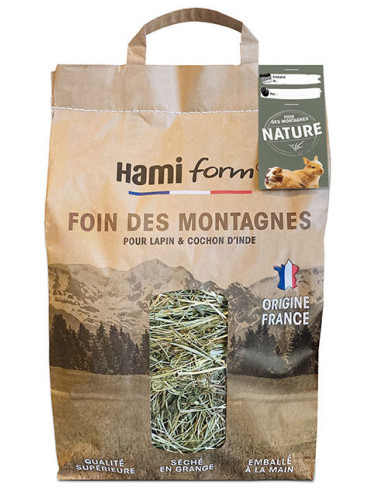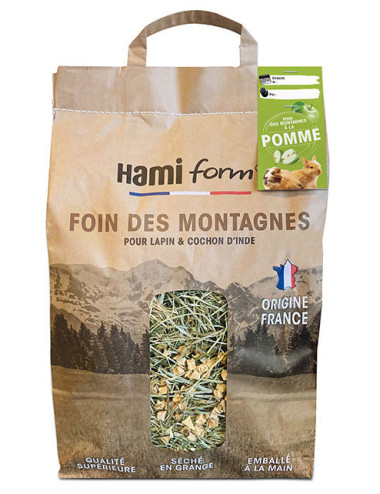- 12 in stock
Hay Rabbit
Hay for Rabbit: An Essential Ingredient at “Le Petit Rongeur”
Hay is not just a dietary supplement, it is the very basis of a rabbit or rodent's diet. At "Le Petit Rongeur", we understand the importance of providing your little companion with high quality hay, which not only maintains their teeth but also promotes good digestive balance. A healthy rabbit is one that has unlimited access to very green, dry, cleaned and fragrant hay, rich in fiber, vitamins, proteins, minerals, and carbohydrates.
Why is Hay Essential?
Hay plays a crucial role in the daily diet of rabbits and rodents. A main source of fiber, it helps maintain a healthy digestive system and promotes natural tooth wear. At "Le Petit Rongeur", we offer a varied range of quality hay, ranging from Crau hay, known for its richness in minerals, to organic hay, guaranteeing a 100% healthy diet, including meadow hay. and compressed hay, to suit all needs.
Discover the Types of Hay at “Le Petit Rongeur”
Each type of hay has its specific benefits. Crau hay, with its high mineral content, is perfect for those seeking excellence. Meadow hay offers a diversity of tastes thanks to its varied composition of grasses, plants, flowers, and leaves. For organic fans, our organic hay ensures a healthy and natural diet. Finally, compressed hay, convenient for storage and dust-free, is ideal for maintaining a clean environment for your animal.
Advantages and Disadvantages of Different Hays
At “Le Petit Rongeur”, we want you to make the best choice for your rabbit or rodent. Crau hay, although excellent, can be more expensive, while meadow hay, more accessible, varies in composition depending on the season. Organic hay is optimal for health, but its price can be a barrier for some. As for compressed hay, while it is space efficient, some animals may prefer the more natural texture of other types of hay.
Hay
Hay for Rabbit: An Essential Ingredient at “Le Petit Rongeur”
Hay is not just a dietary supplement, it is the very basis of a rabbit or rodent's diet. At "Le Petit Rongeur", we understand the importance of providing your little companion with high quality hay, which not only maintains their teeth but also promotes good digestive balance. A healthy rabbit is one that has unlimited access to very green, dry, cleaned and fragrant hay, rich in fiber, vitamins, proteins, minerals, and carbohydrates.
Why is Hay Essential?
Hay plays a crucial role in the daily diet of rabbits and rodents. A main source of fiber, it helps maintain a healthy digestive system and promotes natural tooth wear. At "Le Petit Rongeur", we offer a varied range of quality hay, ranging from Crau hay, known for its richness in minerals, to organic hay, guaranteeing a 100% healthy diet, including meadow hay. and compressed hay, to suit all needs.
Discover the Types of Hay at “Le Petit Rongeur”
Each type of hay has its specific benefits. Crau hay, with its high mineral content, is perfect for those seeking excellence. Meadow hay offers a diversity of tastes thanks to its varied composition of grasses, plants, flowers, and leaves. For organic fans, our organic hay ensures a healthy and natural diet. Finally, compressed hay, convenient for storage and dust-free, is ideal for maintaining a clean environment for your animal.
Advantages and Disadvantages of Different Hays
At “Le Petit Rongeur”, we want you to make the best choice for your rabbit or rodent. Crau hay, although excellent, can be more expensive, while meadow hay, more accessible, varies in composition depending on the season. Organic hay is optimal for health, but its price can be a barrier for some. As for compressed hay, while it is space efficient, some animals may prefer the more natural texture of other types of hay.
- 8 in stock
- 16 in stock
- in replenishment
- in replenishment
- 3 in stock
- 7 in stock
- 12 in stock
- 15 in stock
- 16 in stock
- 28 in stock
- 20 in stock
- 21 in stock
- 14 in stock
- 4 in stock
- 32 in stock
- 20 in stock
- 21 in stock
- 13 in stock
- 24 in stock
- 11 in stock
- 10 in stock
- 5 in stock
- 8 in stock
- 19 in stock
- 9 in stock
- 2 in stock
- 4 in stock
- 6 in stock
- 6 in stock
- 2 in stock
- 4 in stock
- 4 in stock
- 1 in stock
- in replenishment
- in replenishment
- in replenishment
- in replenishment
- in replenishment
- in replenishment
- in replenishment
- in replenishment
- in replenishment
- in replenishment
- in replenishment
- 4 in stock
- in replenishment
- 3 in stock
- 3 in stock
- 6 in stock
- 9 in stock
- 3 in stock
- 9 in stock
- 3 in stock
- in replenishment
- 9 in stock
- 6 in stock
Questions / Réponses
R : Le foin est crucial pour les lapins car il fournit les fibres essentielles nécessaires à une bonne digestion. Il aide à prévenir les problèmes intestinaux, comme la stase gastrique. De plus, mâcher du foin contribue à l'usure naturelle des dents du lapin, qui poussent en continu. Un régime riche en foin est donc indispensable pour la santé globale du lapin.
Les lapins doivent avoir un accès illimité au foin. Il devrait constituer environ 70-80% de leur alimentation globale. Assurez-vous qu'ils disposent toujours de foin frais et propre à grignoter tout au long de la journée.
Non, les granulés de foin ne peuvent pas remplacer le foin en vrac. Le foin en vrac est essentiel pour permettre aux lapins de mâcher et de grignoter, ce qui est important pour leur santé dentaire et digestive. Les granulés de foin peuvent être un complément, mais ne doivent pas être la principale source de fibres.
Pour encourager un lapin à manger plus de foin, essayez de varier les types de foin (comme le foin de fléole, d'orchard ou d'avoine), placez le foin à différents endroits de la cage, ou mélangez-le avec des herbes séchées pour le rendre plus attrayant. Assurez-vous également que le foin est frais et appétissant.
Conservez le foin dans un endroit sec et frais, à l'abri de la lumière directe et de l'humidité pour préserver sa qualité. Évitez de le stocker dans des sacs en plastique, car cela peut provoquer de la moisissure. Utilisez des contenants respirants comme des sacs en toile ou des boîtes en carton.
Un foin de mauvaise qualité peut être poussiéreux, moisi, ou avoir une odeur désagréable. Il peut aussi être très sec ou décoloré. Un bon foin doit avoir une couleur verte, une odeur fraîche et agréable, et être exempt de moisissure et de poussière.
